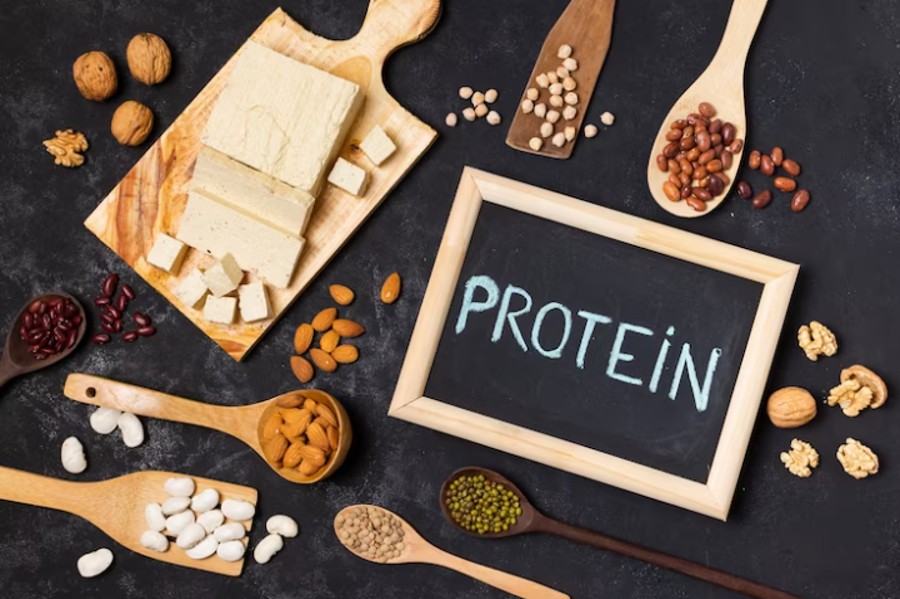
Importance of Protein
Today we will know what is protein? I will try to give a clear idea about the function and importance of protein. The organic compounds that combine hydrogen, nitrogen, oxygen and carbon to form amino acids are basically called proteins. That is, protein is a type of the largest organic molecule or macromolecule. which consists of producing one or more long amino acids. which helps to combine to form long chains. It acts powerfully as the building blocks of body cells.
Protein is a type of biomolecular molecule or macromolecule which is the main component of living organisms. It is an essential part of physical and chemical processes. Proteins play a vital role in a wide range of physiological functions, such as the formation of solids, the formation and fate of microorganisms, digestion, sleep, brain function, hormone secretion, etc.
Proteins are formed in glands or organs and are attached to one or more amino acid oximes. The primary structure of proteins is spatial, but it is divided into three basic human structures, which are mainly identified as classifications. These categories are:
What are histone proteins?
Histone proteins are proteins that function as part of the cell’s nucleus. These proteins are used to ensure packaging and bonding of DNA within the cell nucleus. Histone proteins form specialized DNA structures to beautify and organize DNA. These proteins play important roles in cell DNA modification, gene expression, and chromosome structure. Four basic structures are found in histone proteins: histone wheel, histone core, histone tail, and histone markers. These proteins combine to form specific DNA chromatin structures, and they aid in chromosome function and replacement.
What is lipoprotein?
Lipoprotein is a unique protein that plays a key role in regulating blood pressure and transporting cholesterol in humans. It is an important protein that regulates cholesterol and triglyceride levels in the human body and regulates blood pressure. Lipoproteins show capacity and diffuse into the blood, which helps maintain normal blood pressure. Lipoproteins are a subclass of heptaproteins that transport cholesterol and other fat molecules in the blood to various body clearing centers. In this process, lipoproteins expand cholesterol and other fat molecules and move them out of the body.
What is C reactive protein?
C-reactive protein (CRP) is a protein used as a marker of the body’s inflammatory response. It is produced in electronic processes and is usually increased in various physical conditions, such as acquired complex diseases, acid reactions, autoimmune diseases, periodic diseases, or physical infections.
CRP levels are analyzed as a marker of deployment and disease response. A higher CRP level can be linked to many diseases, such as cancer, heart disease, stroke, minor body infections, etc. The CRP test is usually done as part of a complete blood count.
What are plasma proteins?
Plasma protein is a group of proteins found in the blood stream that accounts for approximately 75-85% of the plasma. Among the plasma proteins, many proteins bind to blood sugar. These proteins perform various functions in the bloodstream and play an important role in various body functions. There are 3 types of proteins in plasma proteins:-
- Albumin
- globulin and
- Fibrinogen
However, among these plasma proteins, albumin is the most important type and accounts for the largest fraction. It is mainly responsible for the location of plasma and performs many functions, such as supplying blood with oxygen and proteins.
What is the function of protein?
As we know from the above discussion, proteins are made up of amino acids. which act as the building blocks of body cells. It has many important type of functions in our Human body. So, to put it simply, the role of protein is immense for the structure, function and regulation of body tissues and organs. To meet its needs, it is important to keep milk, eggs, fish, meat in the daily food list. Moreover, it is possible to fulfill its needs by eating fruits with protein.
Importance of Protein
Protein is very important for good health. Proteins have many and varied functions in the cell. Proteins are made up of amino acids that are joined together to form long chains. There are 20 essential amino acids that help build thousands of different proteins in your body. Manufactured proteins make up many tissues in our body, including muscles and organs, as well as hormones and the immune system. Protein is a very functional and important basic element, which is important for almost all lifestyles. The primary function of proteins is to ensure the formation and maintenance of living cells.
However, it plays many other important roles such as muscle formation, hormone production, organ maturation and replacement, enzyme activity, nuclear material arrangement in implantation and culture preparations, etc. As a result, protein is very important in the human body. Proteins perform many important functions in the human body. It naturally performs enzyme functions and maintains coordination with living cells.
Conclusion
From the above discussion, we learned that protein is a very important basic element, which performs numerous functions for life on earth. Before finishing the protein topic let’s give an example:
For example, the protein molecule is responsible for building and maintaining muscle. It helps the lifestyle to build quality and hard muscles. In part, protein is essential for hormonal preparation and plays a key role in the formation and development of the higher family. Moreover, it performs enzyme functions, which facilitate the lifestyle in various reactions.
Checkout this article: 25 High Protein Food List 2023!
